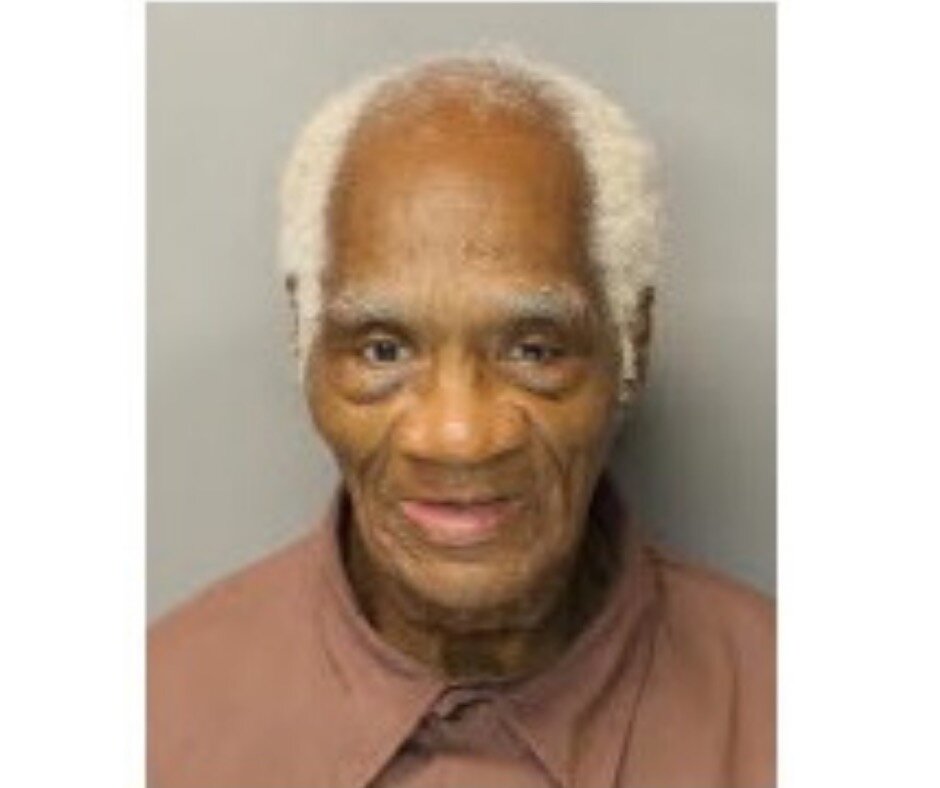“I hope I live long enough to see no other youngster treated as I was treated.” - Joseph Ligon
It was 1953: President Eisenhower was in his first term. The Korean War was raging. It was three years before Elvis hit “The Ed Sullivan Show” and 11 years before the Beatles came to America. More than six decades ago, on a Friday night in a poor section of Philadelphia, there were six teenagers and two switchblades. By the end of the night, eight men were knifed — two died.
Joe Ligon was convicted of two counts of first-degree murder and sentenced by an all-white, three-judge panel. His attorney told him to plead guilty. He recounts one day of a trial where he wasn’t even present. He became a “JLWOP”—Juvenile Life Without Parole. At the time of the arrest he was 15.
Ligon was sent to die in prison.
1953 was the year of the first Black bus boycott in Baton Rouge, Louisiana. In 1954, the Supreme Court ruled racial segregation unconstitutional in Brown v. Board of Education. In 1955, Emmett Till was lynched and the Montgomery bus boycott began. 1956 saw the beginning of the Vietnam War, and in 1957 President Eisenhower ordered the National Guard to escort and protect the Little Rock Nine. DC youth marched through the end of the ’50s for Civil Rights. In 1960, four young men began the lunch counter sit-in movement in Greensboro, North Carolina. In 1963, Martin Luther King, Jr., wrote “Letter from a Birmingham Jail,” The March on Washington took place, and President John F. Kennedy was assassinated.
By 1963, Joseph Ligon had served ten years in prison.
In 1964 was Freedom Summer, the Mississippi “Burning Murders,” and when the Civil Rights Act was passed, followed up by the Voting Rights Act in 1965. 1965 also was the year that activists marched from Selma to Montgomery in Alabama, and the same year that Malcom X was assassinated. Martin Luther King Jr. and Senator Robert F. Kennedy were assassinated in 1968, the same year the Fair Housing Act was passed.
By 1968, Joseph Ligon had served fifteen years in prison.
Nixon became president in 1969, running on a campaign that promoted “law and order” and was for “the silent majority.” In 1970, Kent State University was the site of an anti-war protest that saw the deaths of four students by the National Guard. The Pentagon Papers were leaked in 1971, exposing the negative assessment of the Vietnam War by the Secretary of Defense. The War on Drugs begins in 1971, when Nixon declared drug abuse “public enemy number one,” which really intended to attack the Black community and anti-war supporters. Shirley Chisholm, a Black woman, runs for president in 1972. In 1973, the United States pulled out of the Vietnam War and Nixon was inaugurated for his second term, only to resign in 1974 after the Watergate scandal broke.
By 1975, Joseph Ligon had served twenty-two years in prison.
The United States of America celebrated 200 years as a nation in 1976, the same year the Supreme Court ruled that the death penalty was neither a cruel nor unusual punishment and that Jimmy Carter becomes president. Affirmative Action became practice for US Universities to “compensate” for past discrimination in the admissions process in 1978. Ronald Reagan became president in1981, and Sandra Day O’Connor became the first female justice in the Supreme Court. 1982 saw the passing of the deadline for the Equal Rights Amendment without enough votes for it to be added to the Constitution. Reagan also declared a War on Drugs in 1982. In the early 80’s, Jesse Jackson became a prominent voice in urging Black Americans to exercise the right to vote, and helped Harold Washington to become the first Black mayor of Chicago in 1983. In 1985, Reagan was elected for a second term. 1986 is when Oprah Winfrey started her talk show, promoting the works of Black authors and discussing “difficult” topics.
By 1986, Joseph Ligon had served thirty-three years in prison.
In 1992, the brutal beating of Rodney King by LAPD sparked the LA Riots which caused more than 50 deaths and $1 billion in damages. Bill Clinton became president in 1993. In 1994, Clinton signed off on the Violent Crime Control and Law Enforcement Act, which targeted specific populations and is speculated for accelerating the US’s incarceration rate. Washington, DC saw yet another march in 1995, when the Million Man March took place with the purpose of inspiring Black men to stand together in solidarity. Clinton wins his reelection in 1997, and OJ Simpson is found “liable” in the civil suit that followed the death of his wife. In 1998, Bill Clinton was impeached for perjury and obstruction of justice.
By 1998, Joseph Ligon had served forty-five years in prison.
In 1999, the United States Senate acquitted Clinton of the impeachment charges; and 15 people were murdered by two students at Columbine High School in Colorado, including other students, a teacher, and the students who committed the shooting. By 2000, it is recorded that there are more Black men incarcerated than in college—an effect of the War on Drugs and 1994 Crime Bill. In 2001, George Bush became president, the World Trade Center was attacked by two hijacked planes and more than 3,000 lives were lost, and Colin Powell became the first Black Secretary of State.
By 2002, Joseph Ligon had served forty-nine years in prison.
In 2008, Barack Obama became the first Black president in the history of the United States. He ran on the platform of economic reform, ending the recession, and reforming healthcare. In 2012, 17-year-old Travon Martin was shot by George Zimmerman in Florida. In 2013, Zimmerman was found innocent, sparking nationwide protests and the Black Lives Matter movement, which advocates for the disproportionate amount of systemic violence inflicted upon Black individuals in the US. 2013 also marked a monumental Supreme Court case in which the Voting Rights Act was no longer able to require districts with a history of discrimination to have to wait for proposed changes in voting rules to be approved by the federal government. In 2014, a three-week long protest calling for the end of police brutality occurred in Ferguson, Missouri after a police officer fatally shot Michael Brown. Unrest was already common after the taped death of Eric Garner earlier that same year, when police placed him in a chokehold that eventually caused his death. Freddie Gray’s death, also caused by a police officer, was heavily publicized and resulted in weeks of protests against the police department in Baltimore.
By 2015, Joseph Ligon had served sixty-two years in prison.
In 2016, Donald Trump was elected president, running on an anti-immigrant platform that also advocated for changes to healthcare and tax cuts.
By 2016, Joseph Ligon had served sixty-three years in prison.
In 2018, the First Step Act was introduced, passed with bipartisan support, and signed by President Trump, shortening mandatory minimums for nonviolent drug offenses and is the first step in a hopeful long line of criminal justice reforms. In 2020, a long line of deaths of Black Americans due to racist motives and police brutality sparks a demand for permanent change from the American people. Ahmaud Arbery is murdered by ex-police officers on a run in Georgia, Breonna Taylor is murdered in her sleep from police officers with a wrongful no-knock warrant in Kentucky, and George Floyd is killed by police officers on camera after allegedly using counterfeit money to buy cigarettes in Minneapolis. Protests began on May 26th in Minneapolis and have taken place in all 50 states, multiple countries outside of the US, and legislation has been proposed in the federal government to reform the police system in the United States after politicians recognized the disproportionate amount of violence inflicted upon Black Americans by police officers in particular, with Black men being three times as likely to be killed by the police.
Today, Joseph Ligon has been incarcerated for sixty-seven years.
It’s been 67 years since Joseph Ligon was sent to prison. In those 67 years, America could have shed its legacy of institutionalized racism and violence. Instead, the country remains much like it was on that Friday in 1953 — Black people are unfairly targeted and punished because of the color of their skin.
In 2016, 61 years into his life sentence, Ligon said, “I hope I live long enough to see no other youngster treated as I was treated.” The sad truth is that too many people are still treated that way. America has witnessed major civil rights movements in the time Ligon has been behind bars, yet it continues to fail to embrace equality and human rights. Joe Ligon’s hope remains unfulfilled.
Post by Arden Lesoravage & Molly Engels









